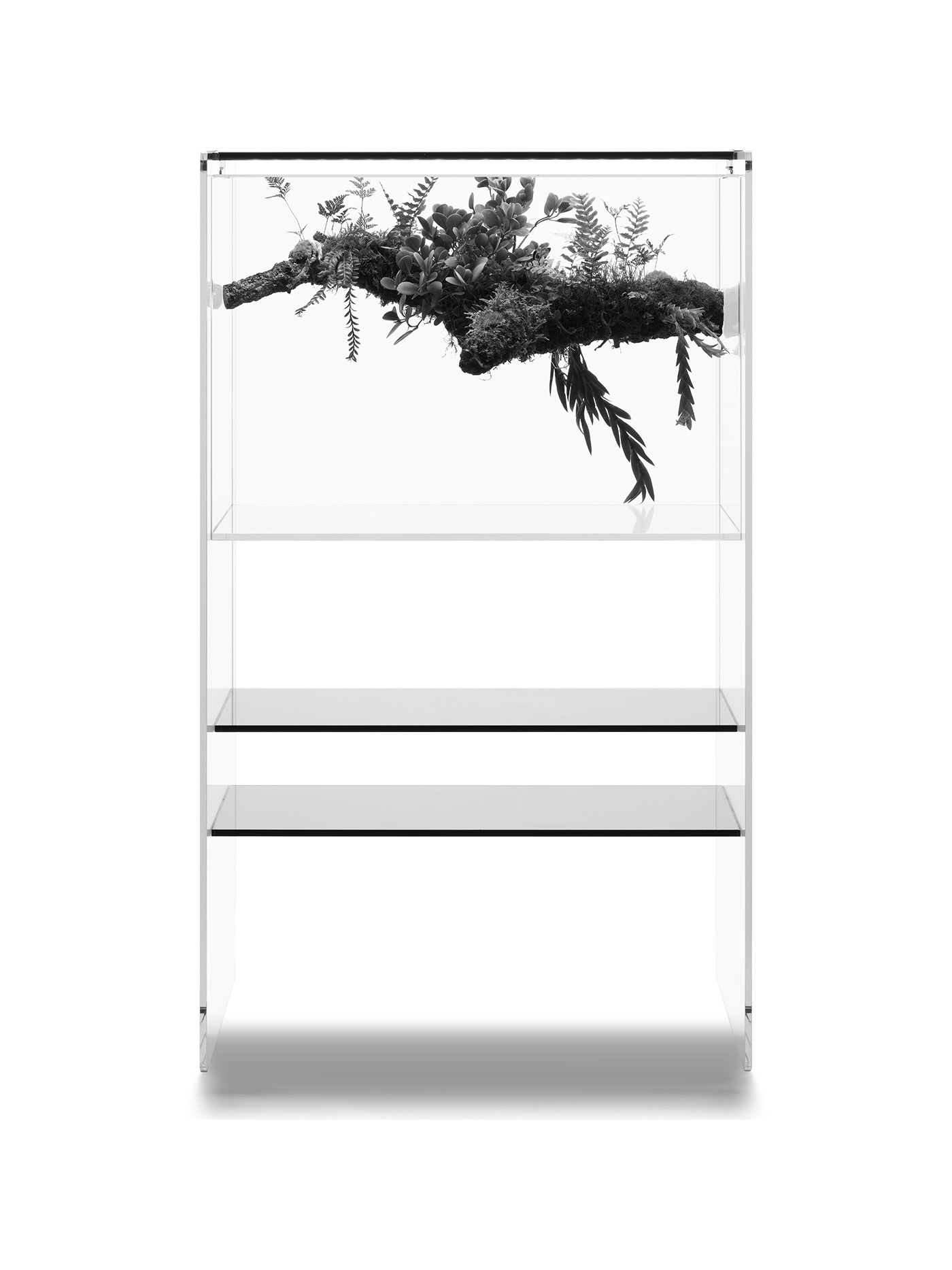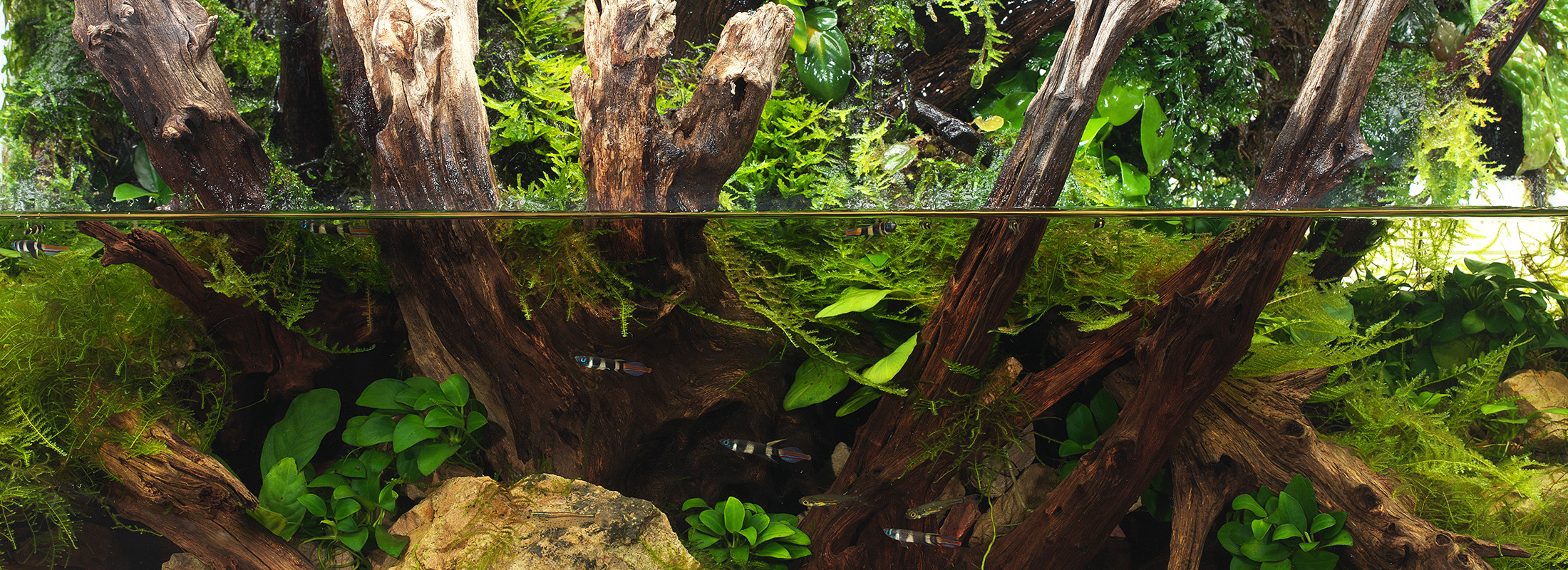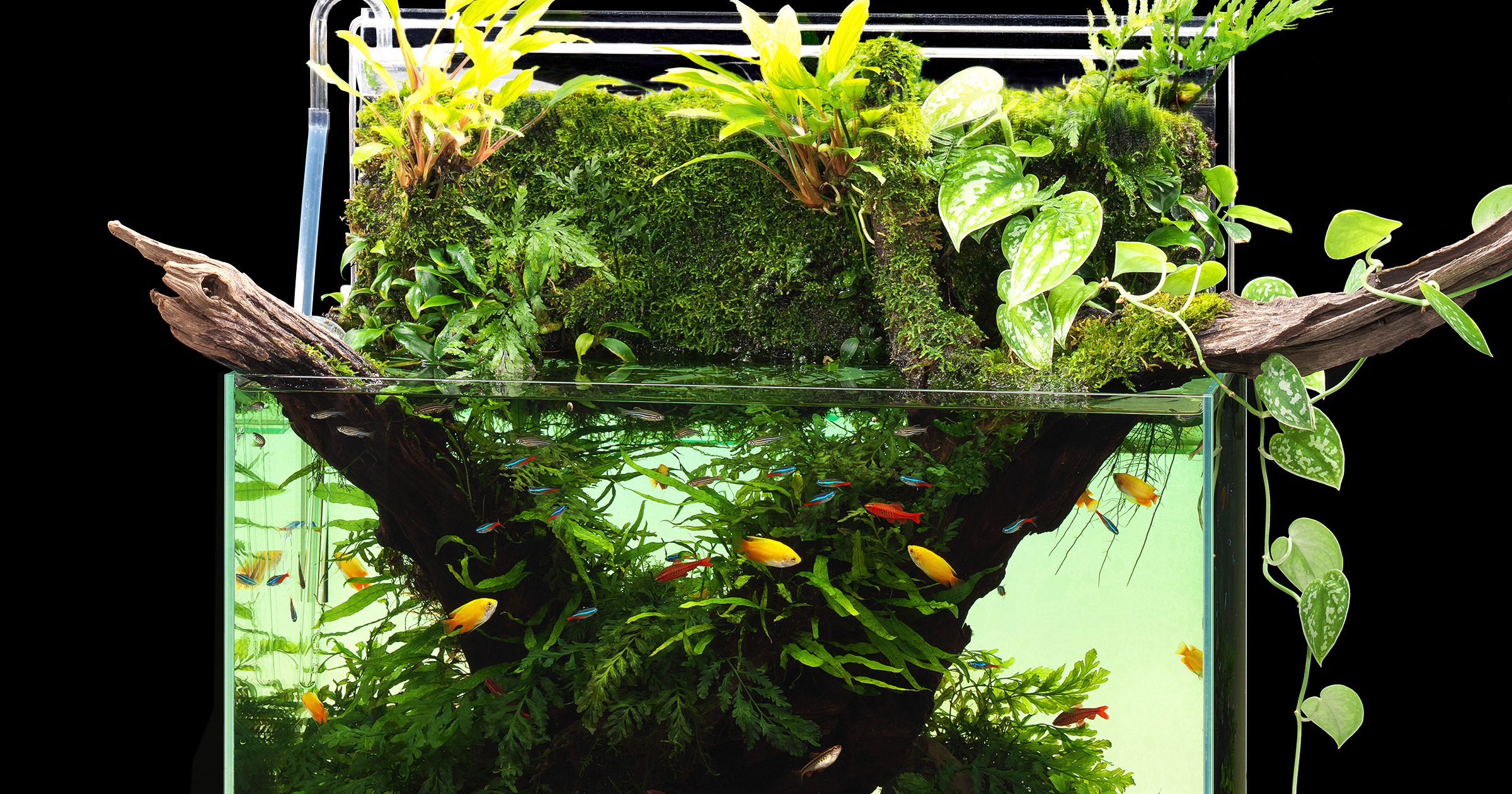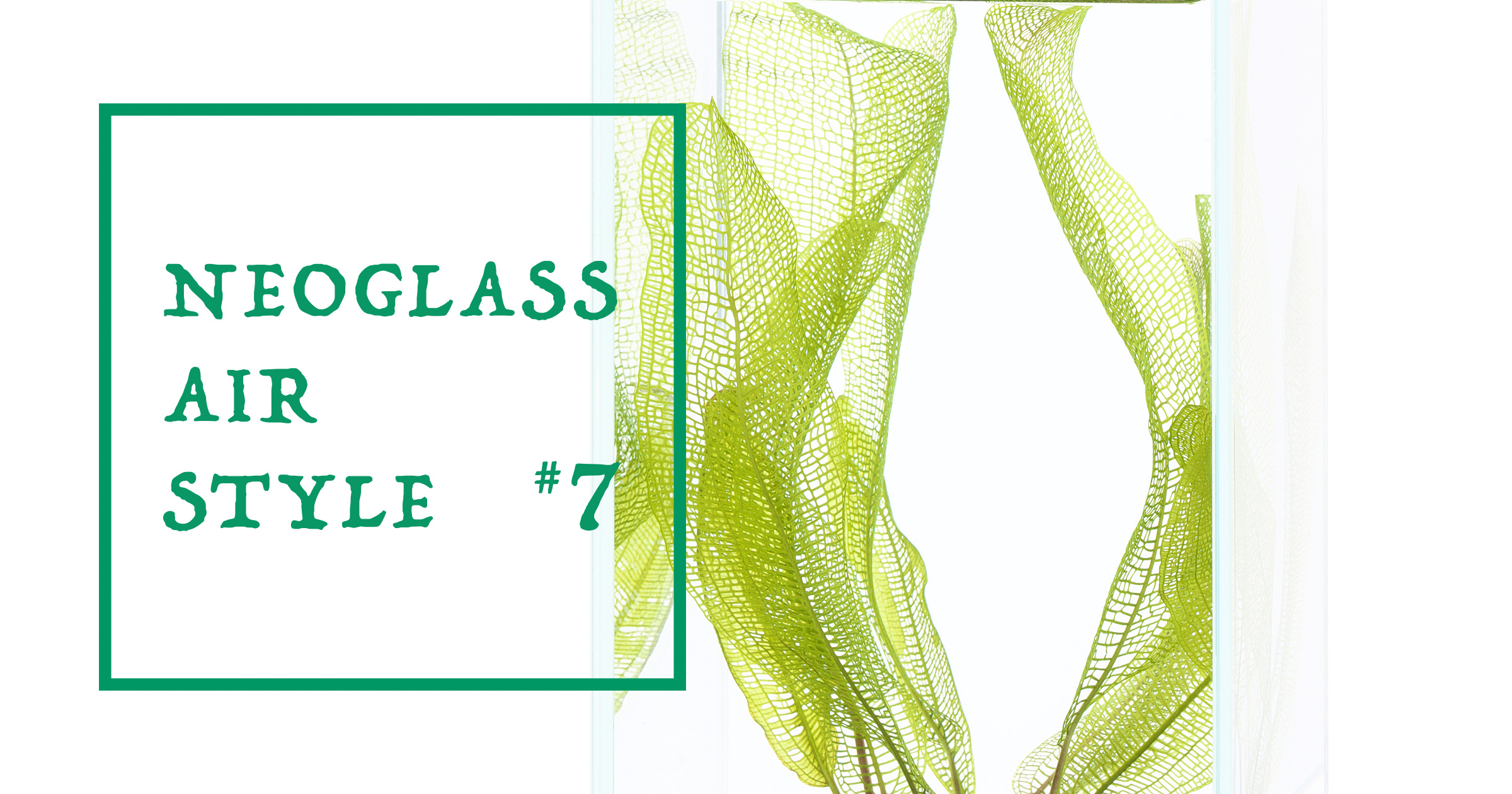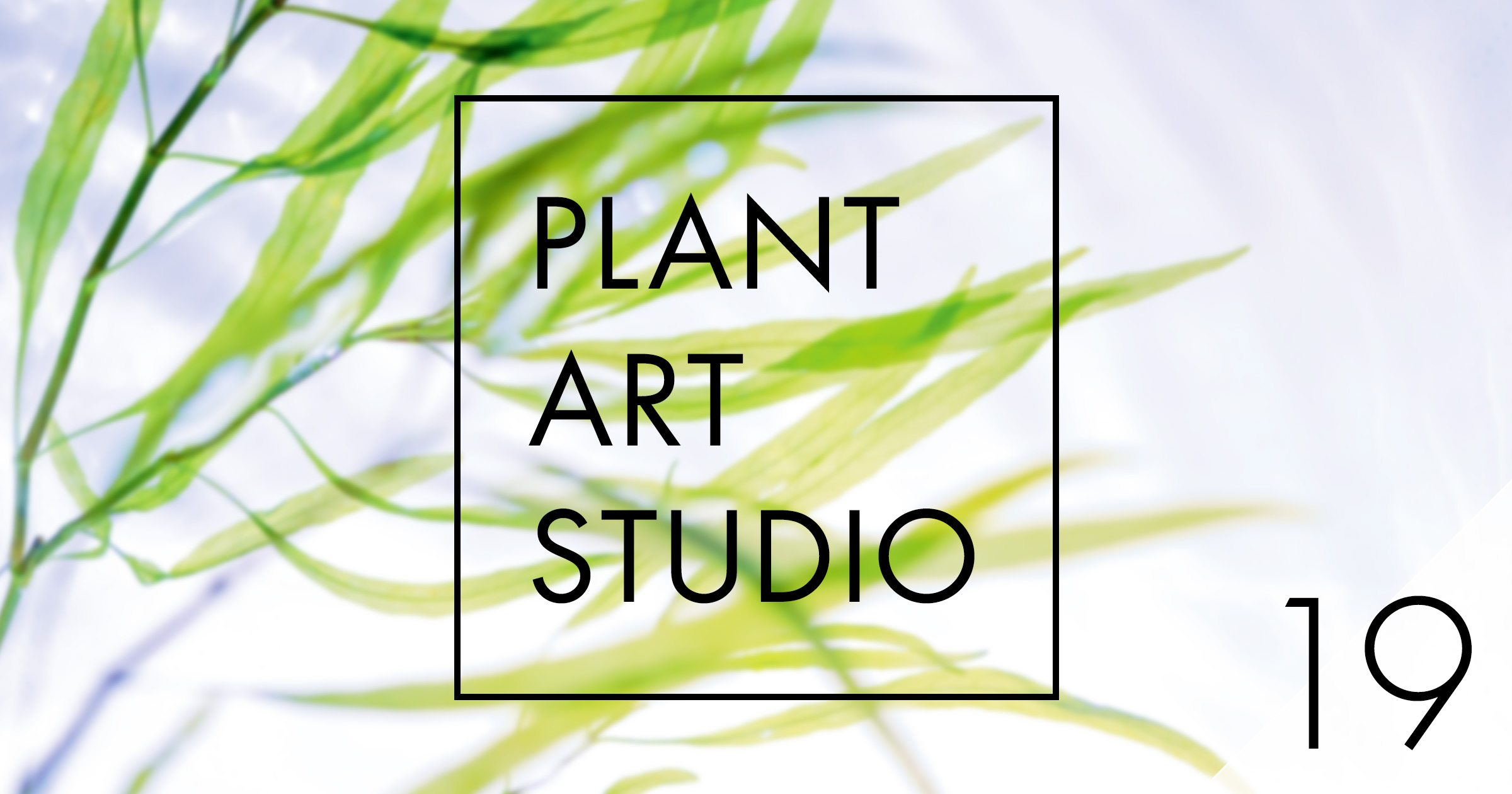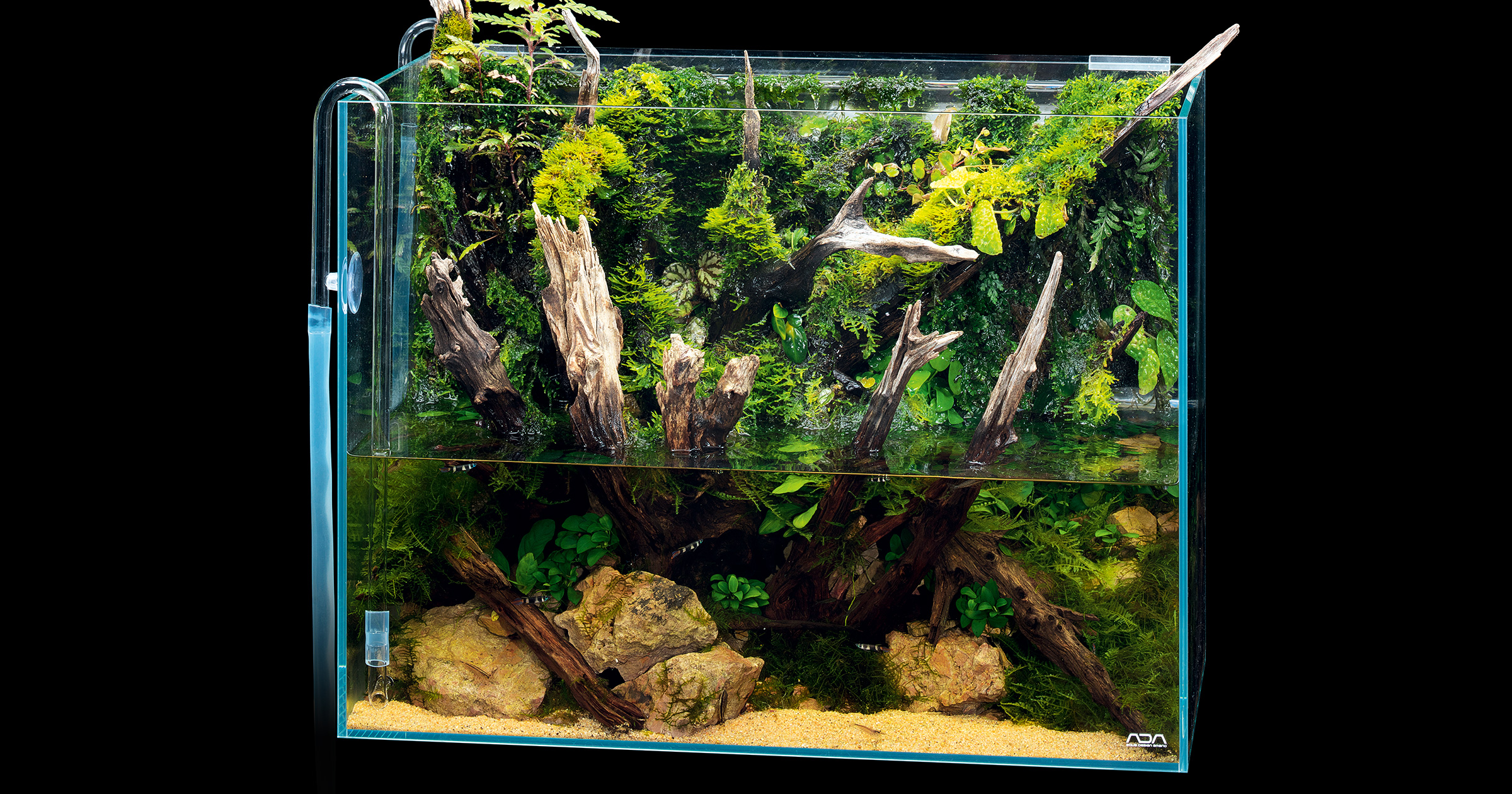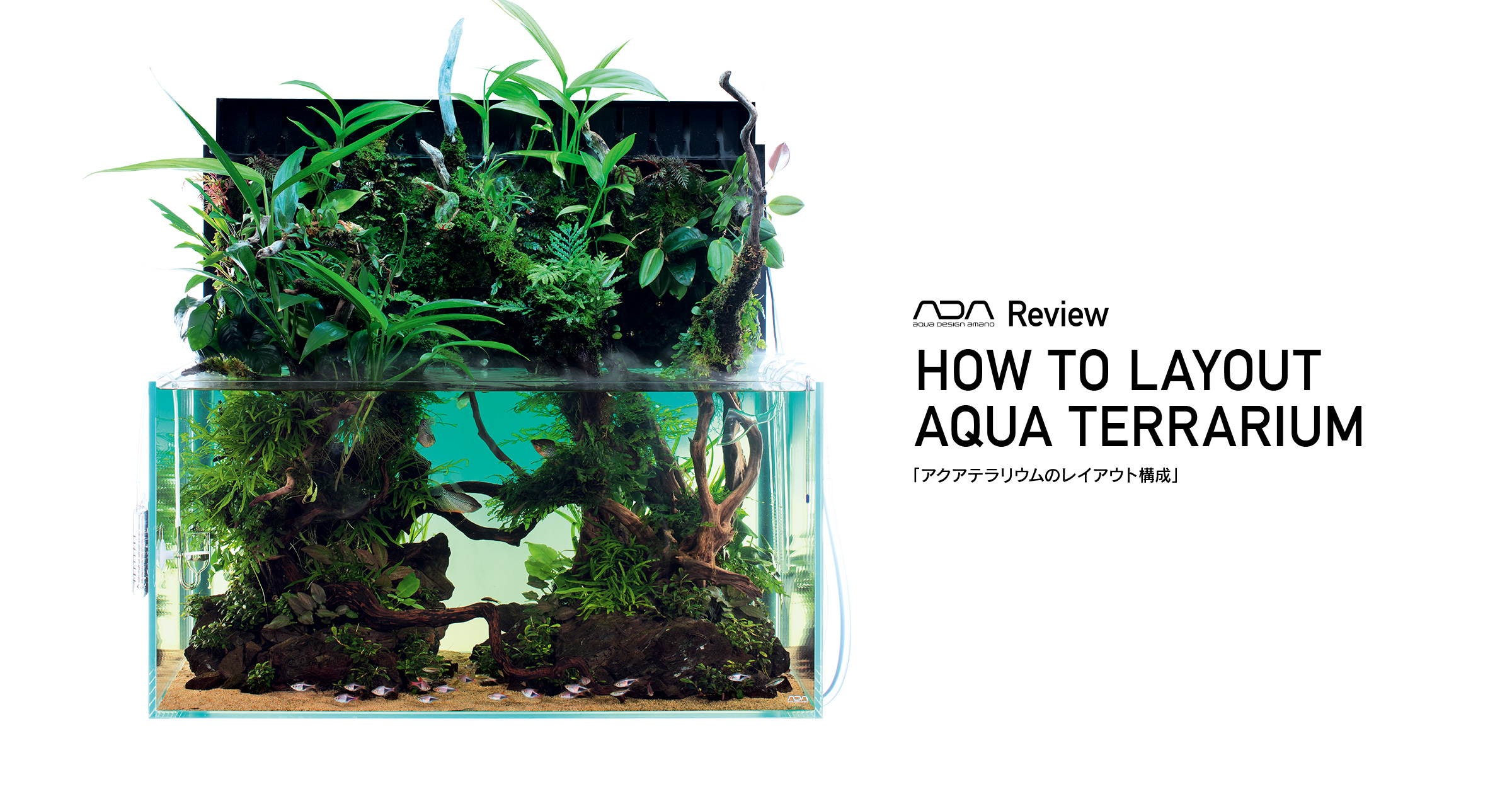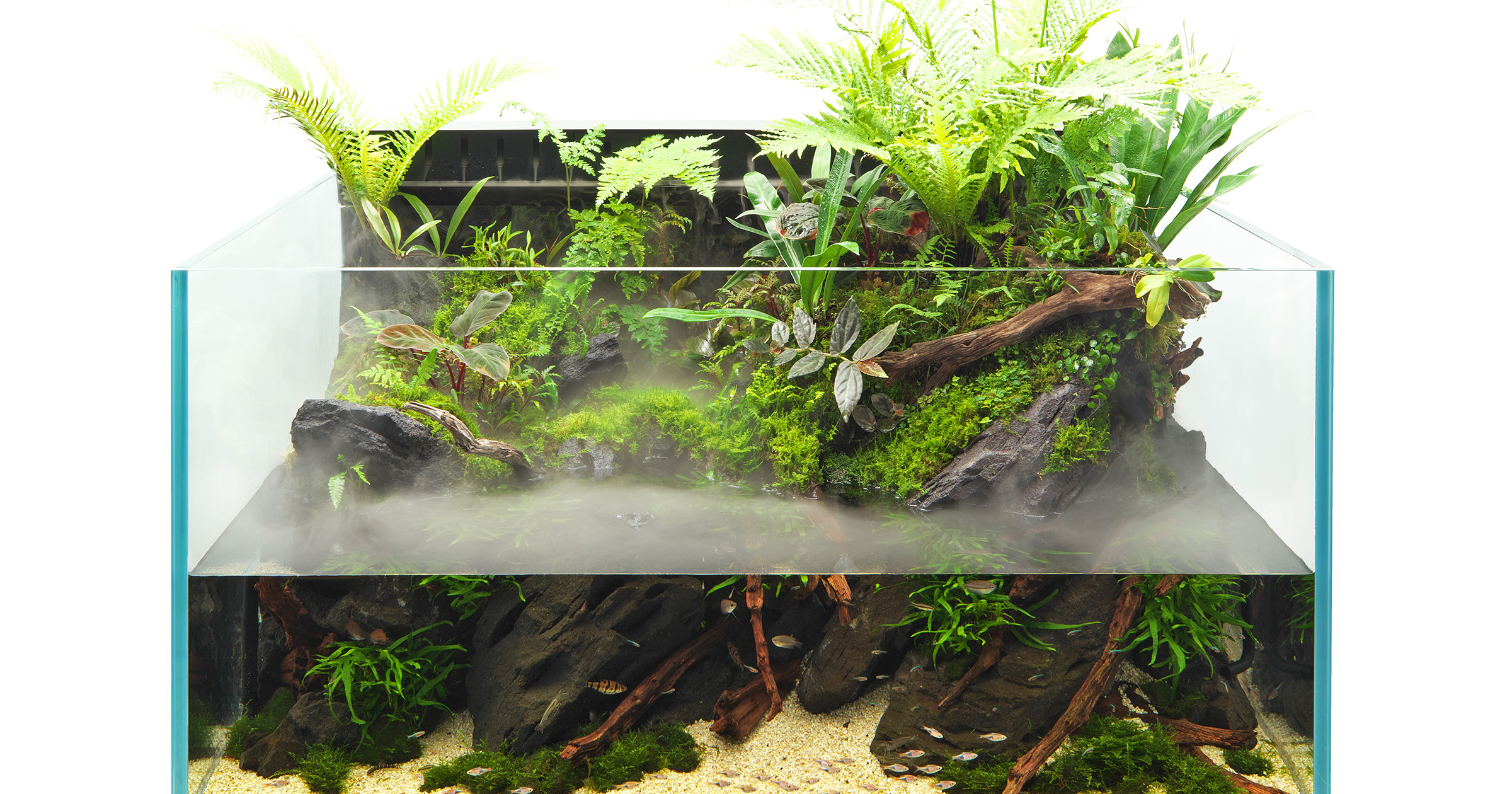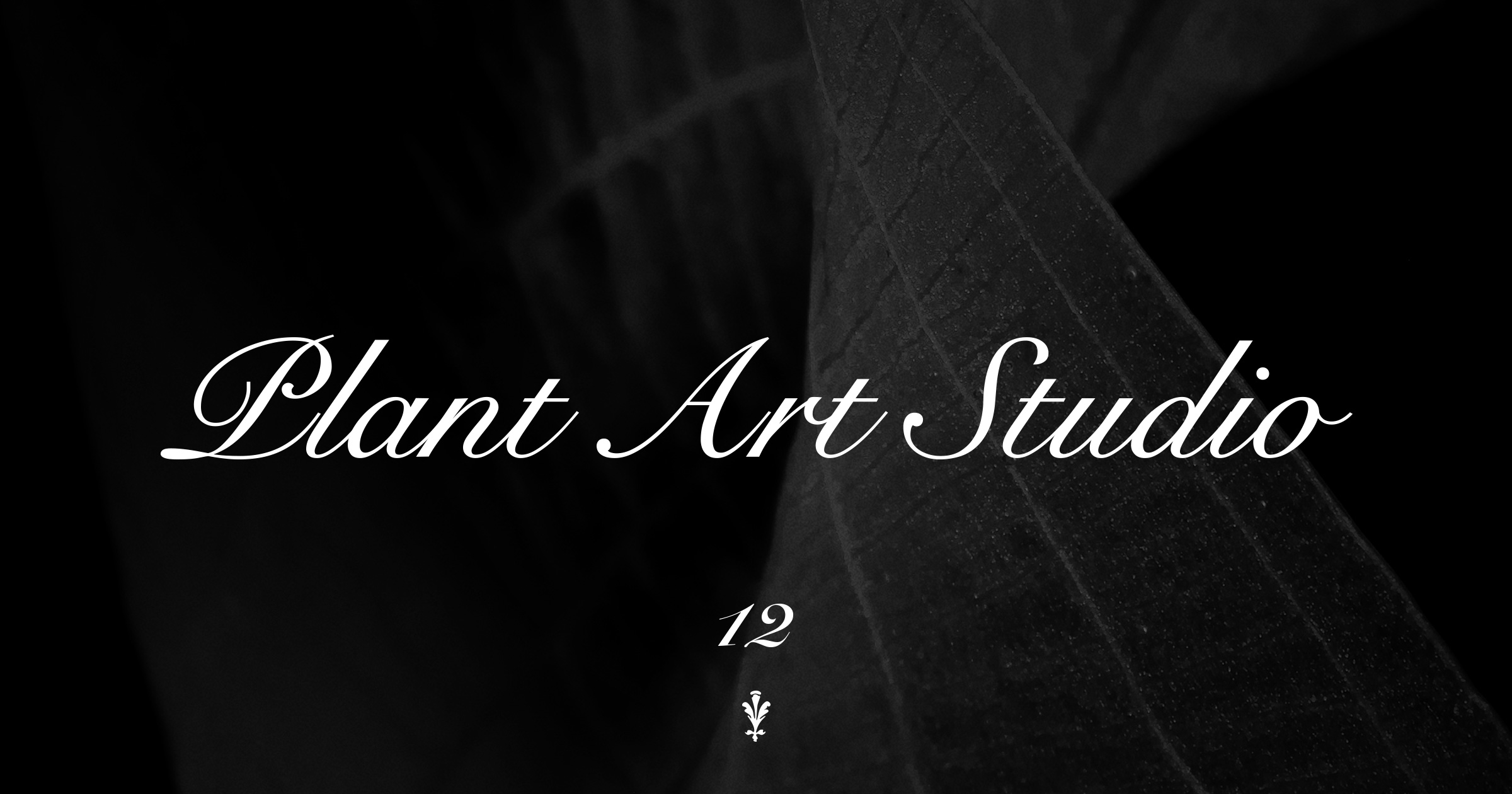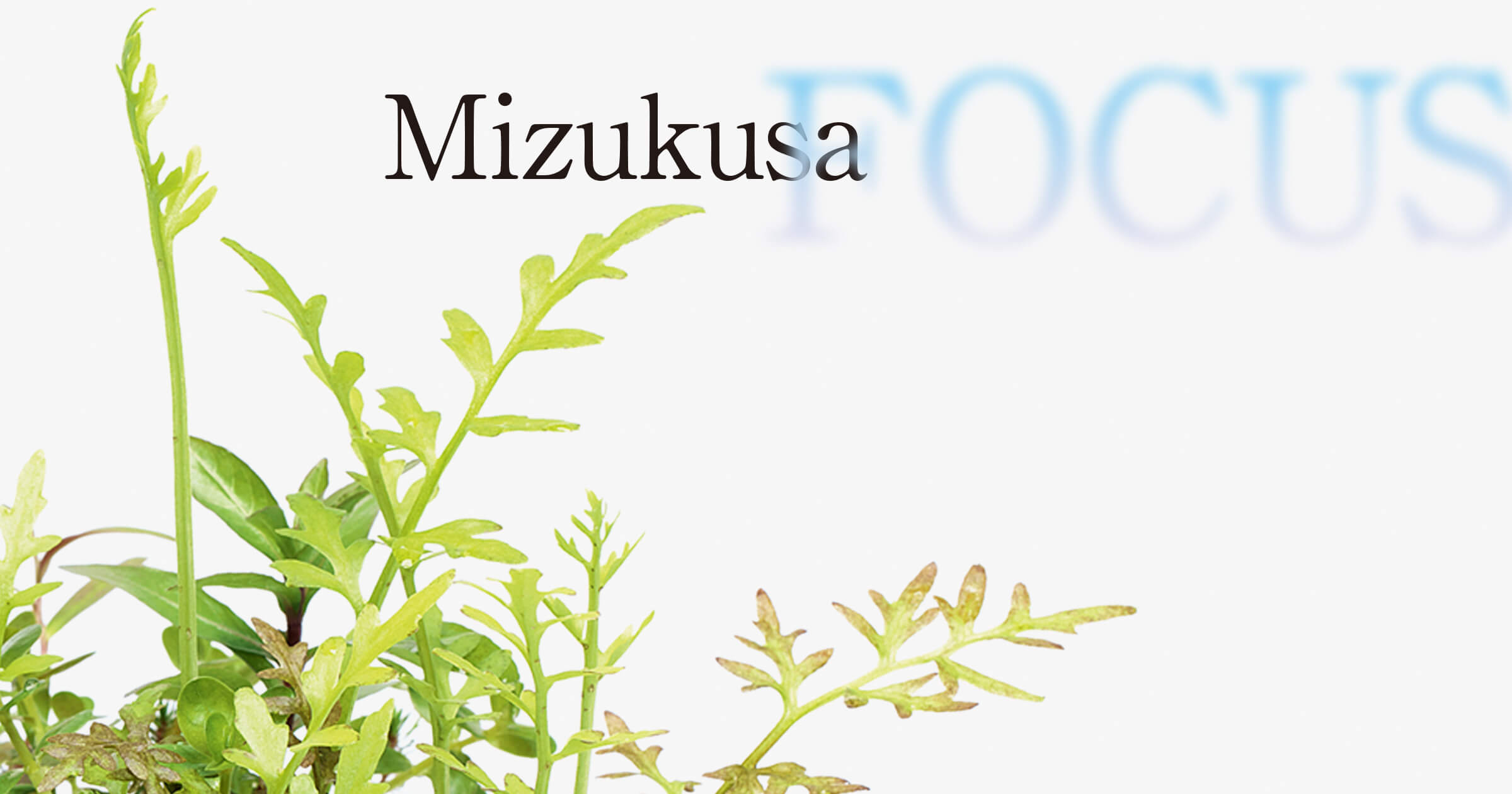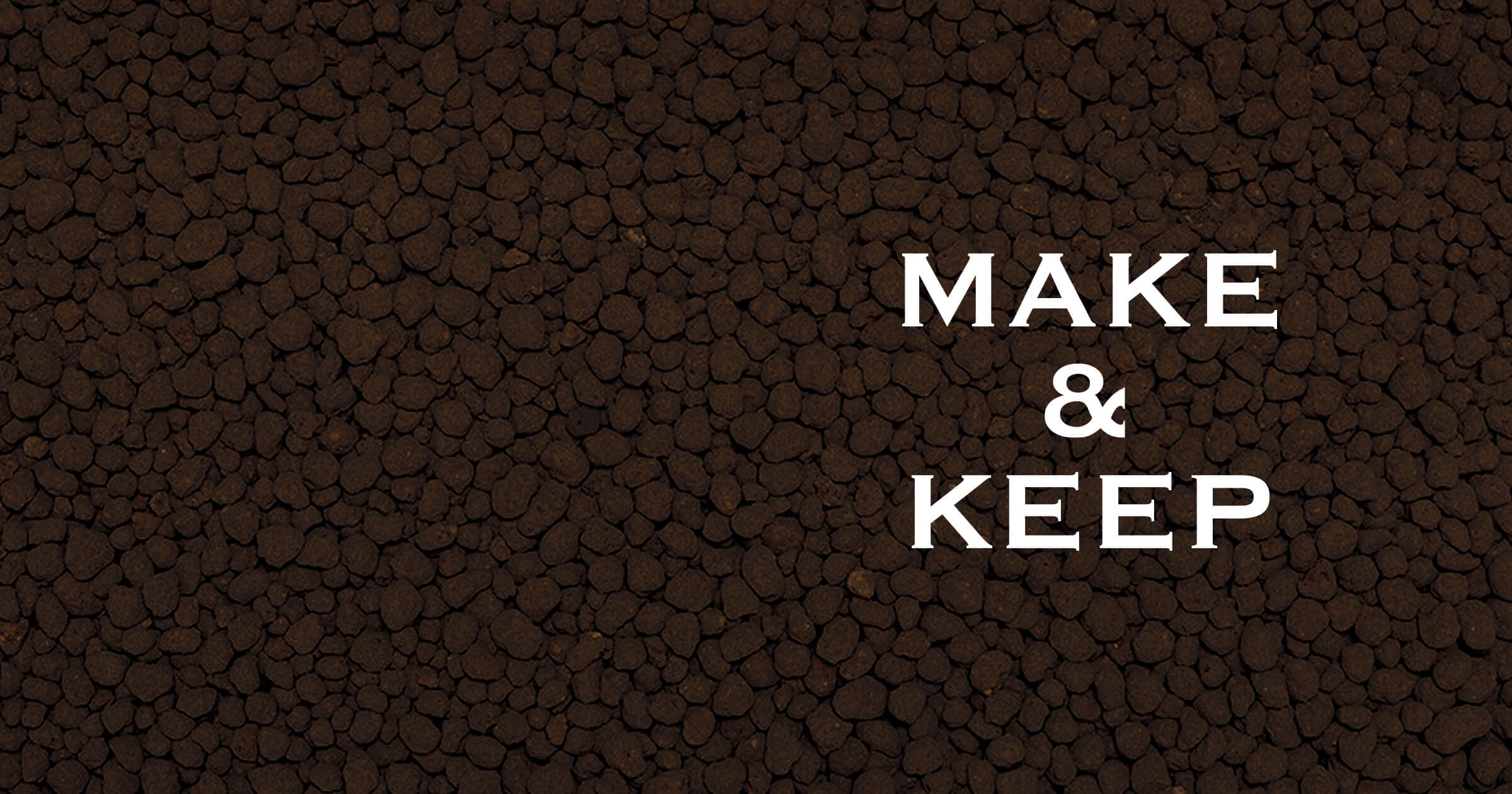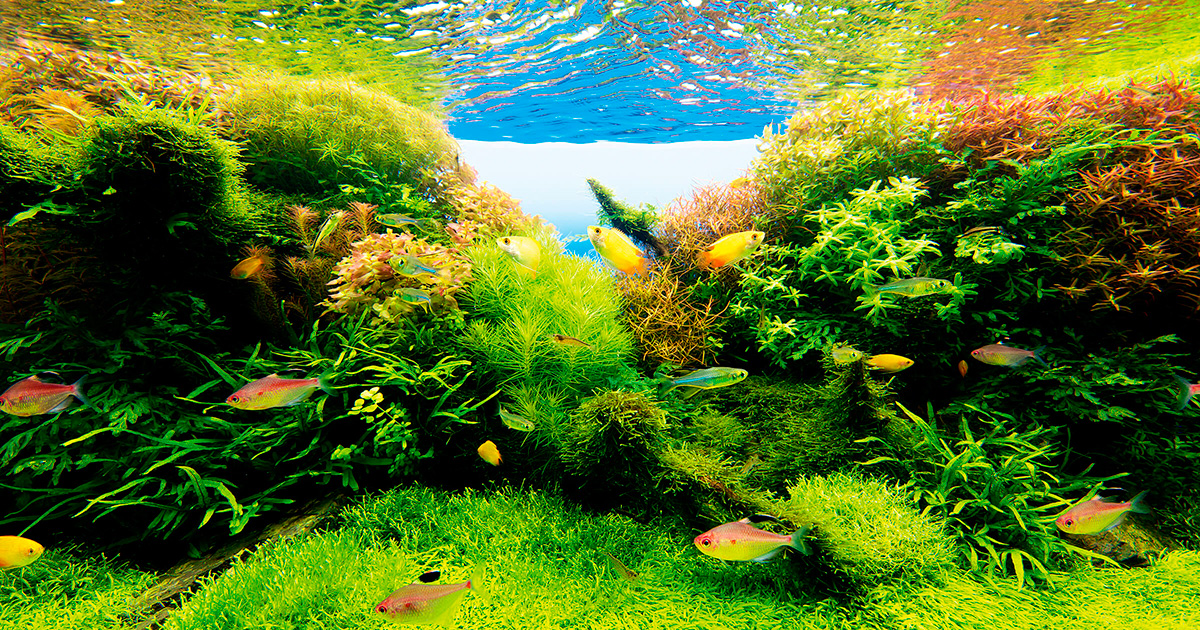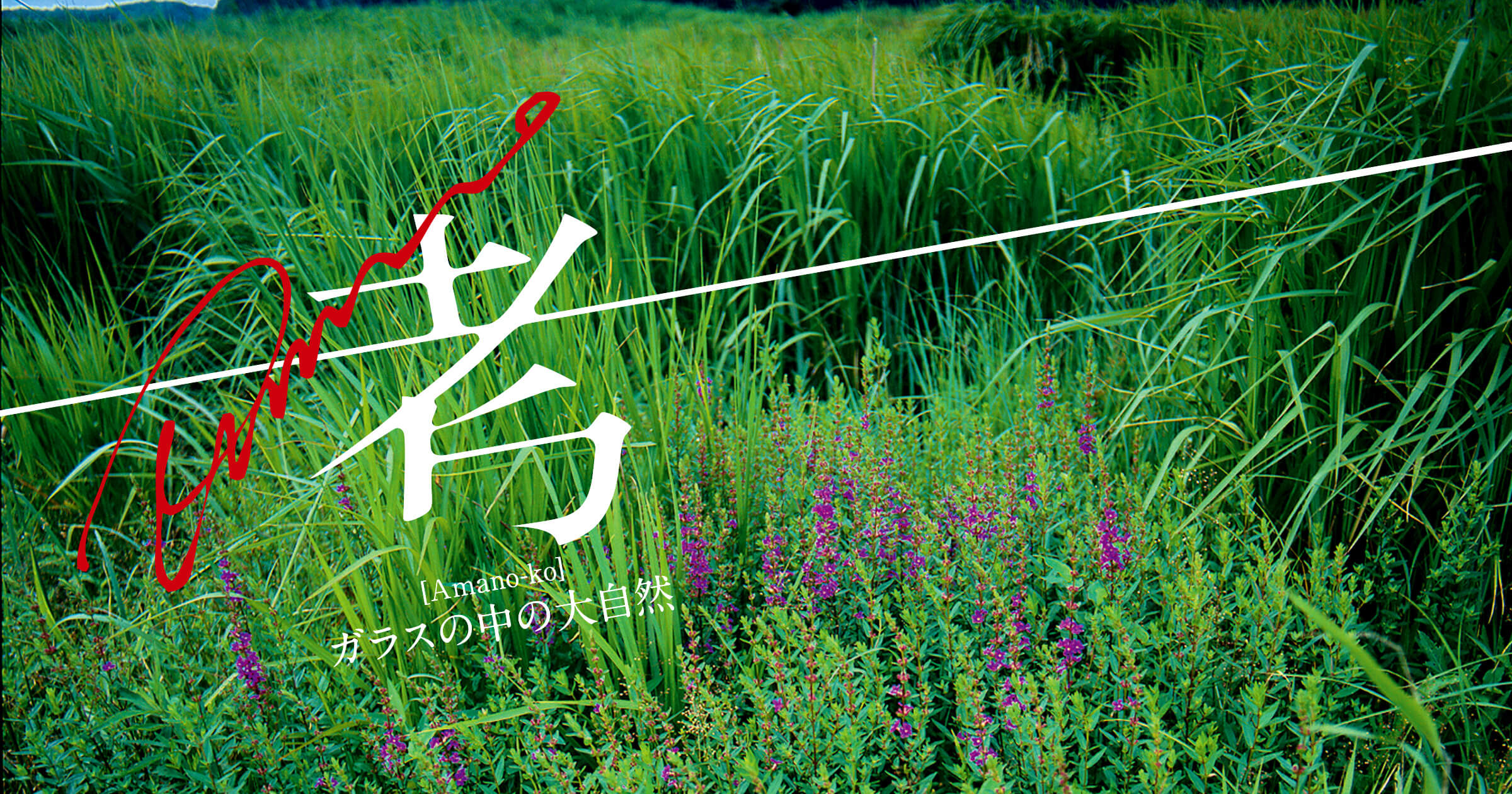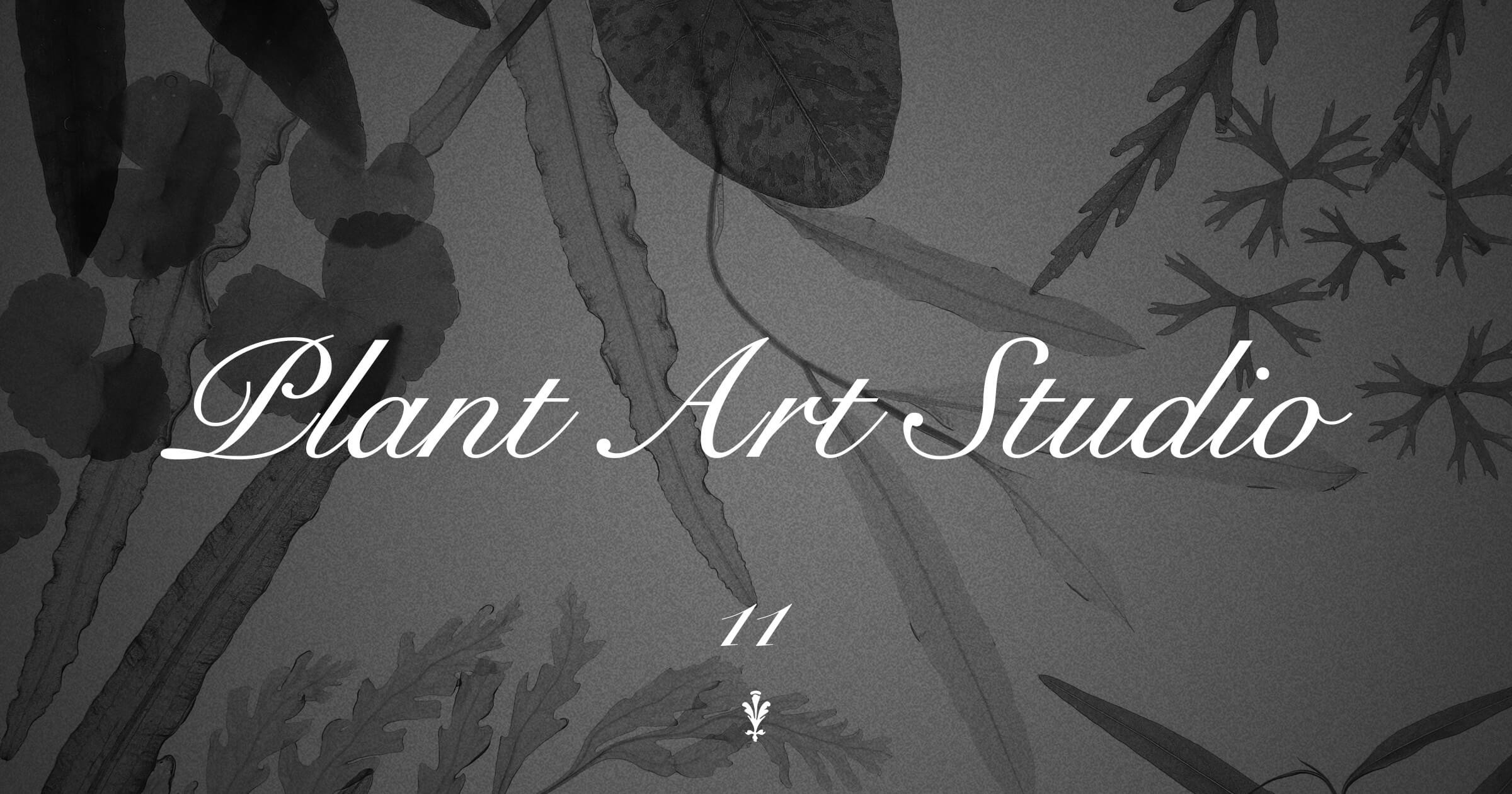NATURE IN THE GLASS ‘Waterfront anticipating the rainy season’
Tropical Aqua Terrarium created with a Wabi-Kusa Wall and making the most of a tall aquarium
‘Waterfront anticipating the rainy season’
Preventing mosses and epiphytic aquatic plants on the wall surface and exposed driftwood from drying up is an important issue for an Aqua Terrarium with a Wabi-Kusa Wall. There are several ways to overcome the problem, such as misting frequently, using mosses that are tolerant of drying, or diverting water from the Cascade Section using mosses. In this layout, the issue was addressed by installing the Wabi-Kusa Wall in the tall aquarium. The advantage of this method is the high humidity environment created within the four surrounding glass walls. The extra distance from the water surface to the top of the aquarium also enables you to keep fish that tend to jump out of an aquarium, such as Pseudepiplatys annulatus. Kei Stones were stacked beneath the wall to fill the space and tie the appearance naturally with the Colorado Sand in the foreground.
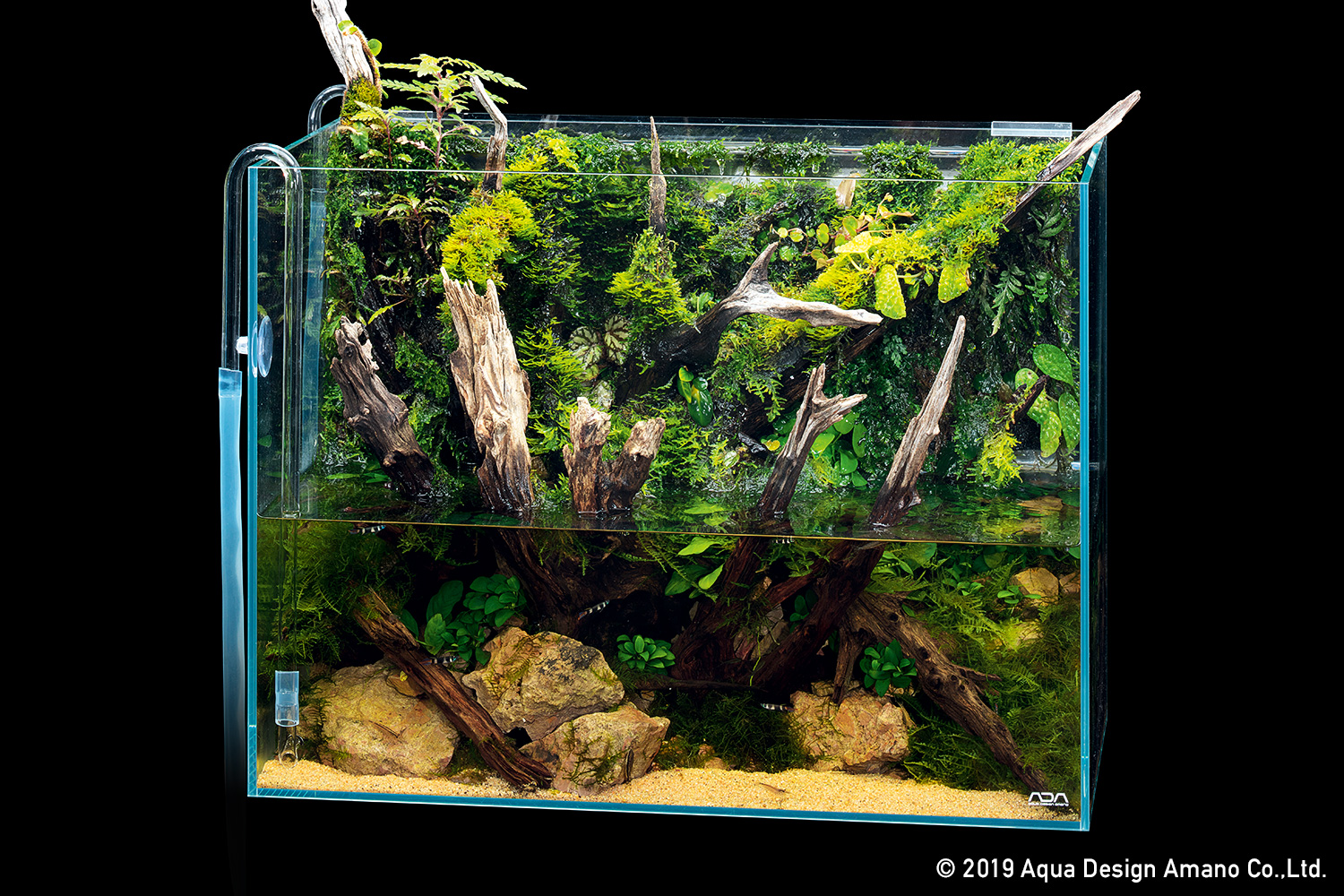
DATA
Shooting date: March 14th, 2019(ADA)
Creator: Yusuke Homma
Aquarium system: Cube Garden W60×D30×H45(cm), Wabi-Kusa Wall 60
Lighting: Solar RGB x 1, turned on for 9 hours per day
Filter: Super Jet Filter ES-300(Bio Rio, NA Carbon)
Substrate: Colorado Sand
CO2: CO2 Mini Counter, 3 bubbles per second via CO2 Mini Diffuser Ø15 (using Tower)
Additives: Brighty K, Green Brighty Mineral
Water change: 1/2 once a week
Water quality: Temperature: 25ºC; pH: 6.8; TH: 20 mg/l
Aquatic Plants: Anubias barteri var. nana ‘Petite’ / Anubias barteri ‘Coffeefolia’ / Bolbitis heudelotii / Hygrophila pinnatifida / Lagenandra meeboldii ‘Red’ / Taxiphyllum sp. ‘Spiky Moss’ / Vesicularia sp.
Plants: Davallia sp. / Begonia microsperma / Begonia lichenora / Begonia luzonensis / Microgramma vacciniifolia
Fish & Invertebrates: Pseudoepiplatys annulatus / Lepidarchus adonis / Crossocheilus oblongus / Otocinclus sp. / Caridina multidentata
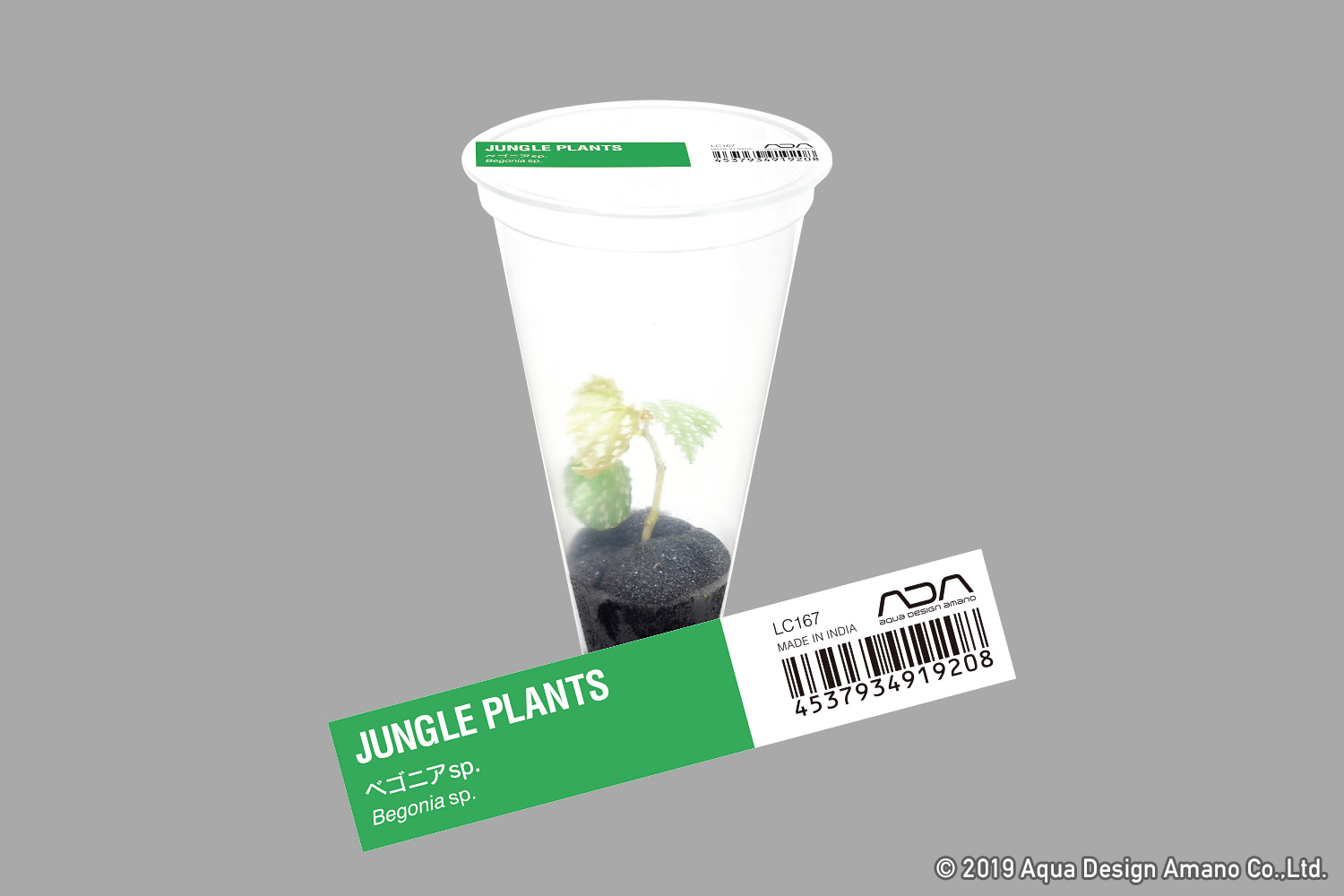
Key points for growing Jungle Plants and epiphytic aquatic plants well
The Jungle Plant Series, which was introduced this spring, as well as the Wabi-Kusa Mats with epiphytic plants, which have been available for some time, have broadened the range of expression for the arrangement of Aqua Terrarium wall surface and above water section. The Jungle Plant Series includes some terrestrial plants, such as begonia and orchids, and amphibious plants, such as Echinodorus. The types of the plants are identified with labels (green for terrestrial and white for aquatic plants.) Since terrestrial type Jungle Plants prefer a high humidity environment, the use of Mistflow or inserting a wall inside an aquarium tank is the key to growing them well by increasing the humidity in the air.
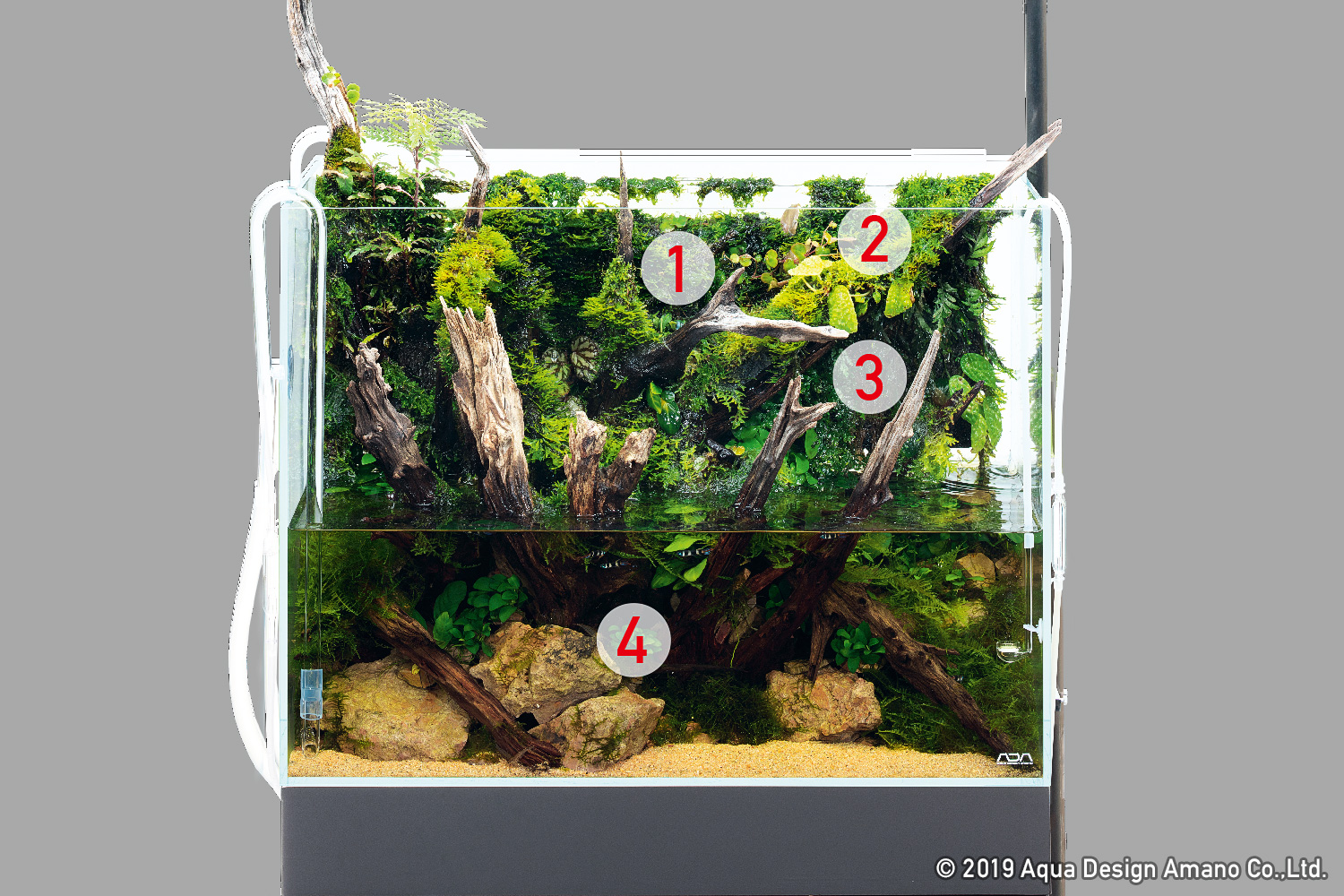
Although the Wabi-Kusa Wall 60 in this layout will be replaced by Mizukusa Wall 60 in the future, their dimensions will stay the same, and therefore they can be used interchangeably.
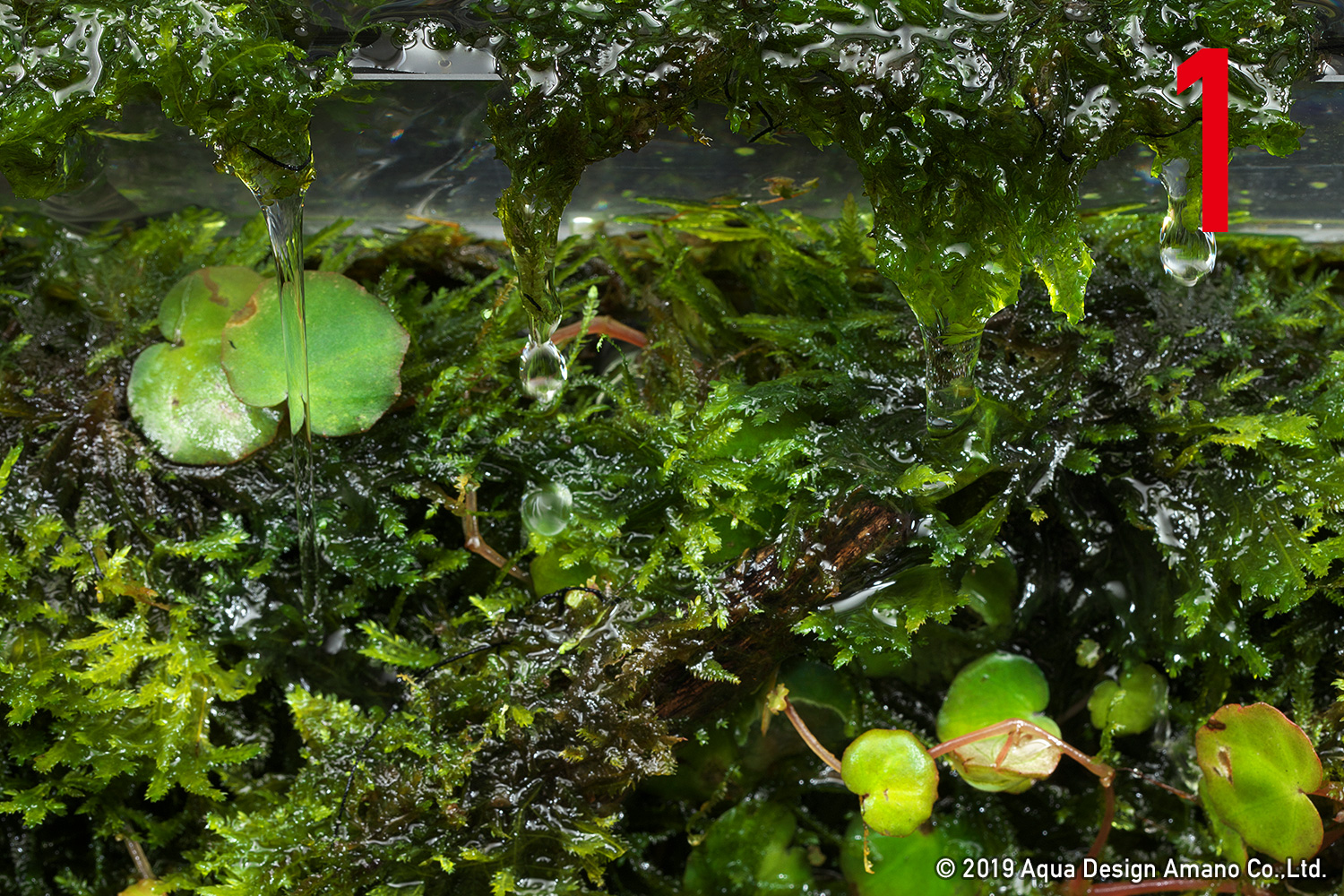
1 Peacock Moss on Wabi-Kusa Mats is used on the wall surface and the driftwood above water. A movement is created to the wall surface, which often appears static, by allowing the water from the Cascade Section to trickle down.
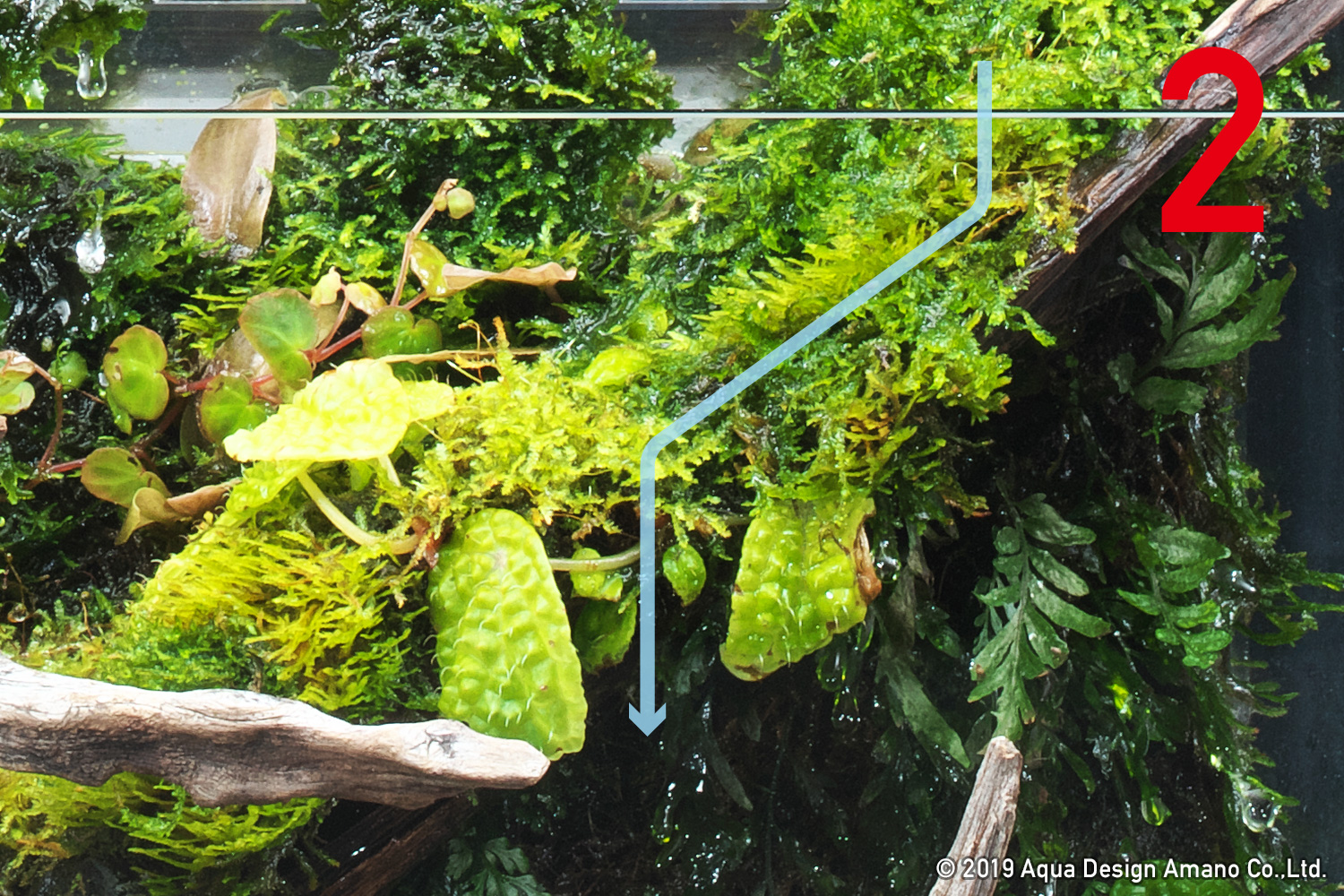
2 The water was directed downward by connecting the Cascade Section and the tip of the driftwood with moss. An ambiance of a tropical rainforest was created by arranging begonia in the Jungle Plants Series on the wall surface in this layout.
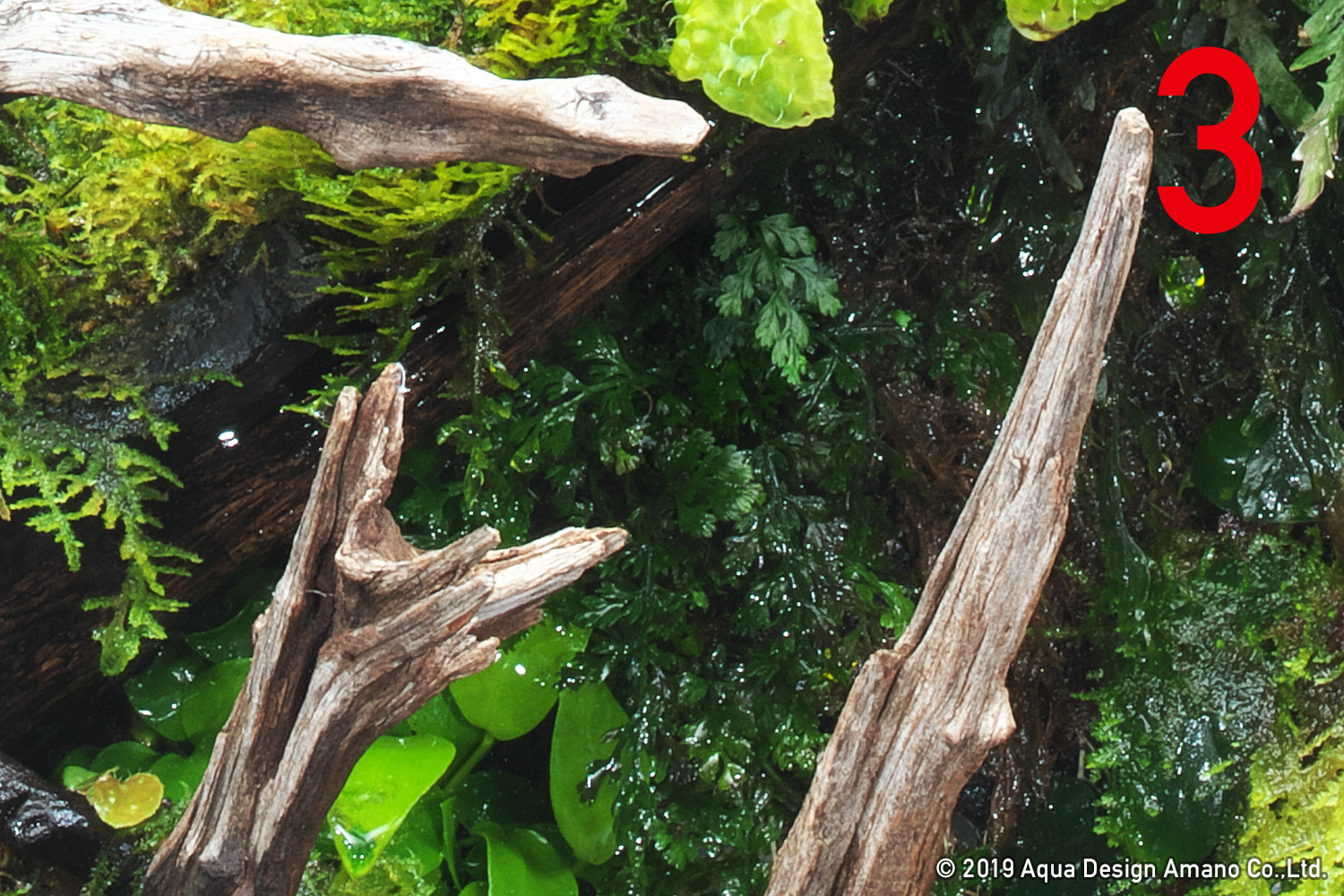
3 Since driftwood branches are set against the wall surface, the area beneath the driftwood is shaded. Ferns are planted primarily in the shaded area to produce a shadowy appearance on the wall.
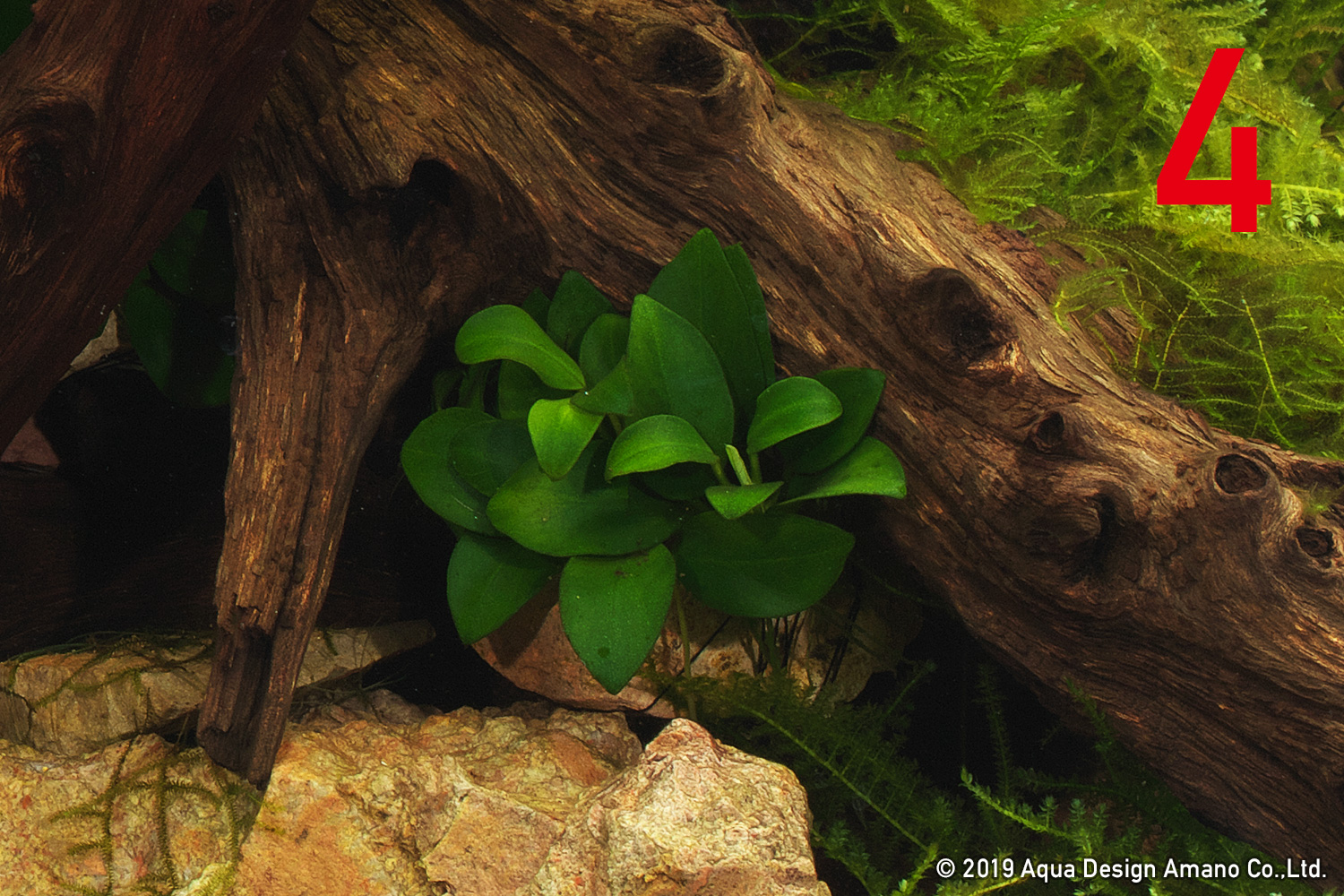
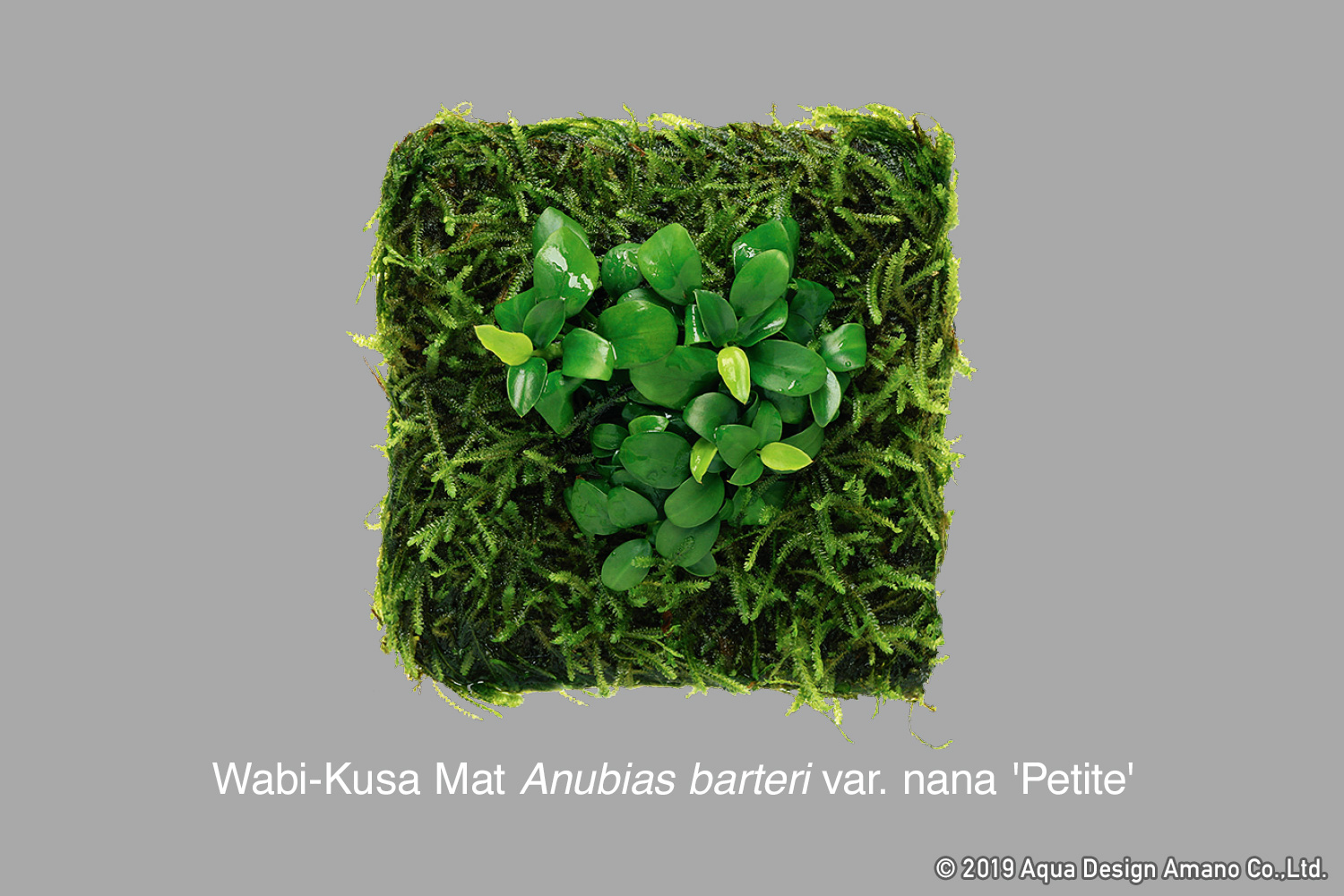
4 The small Anubias attached to a small kei stone was placed in the water after removing it from a Wabi-Kusa. One of the advantages of Wabi-Kusa Mat is that its plant can be removed from it to use elsewhere.

